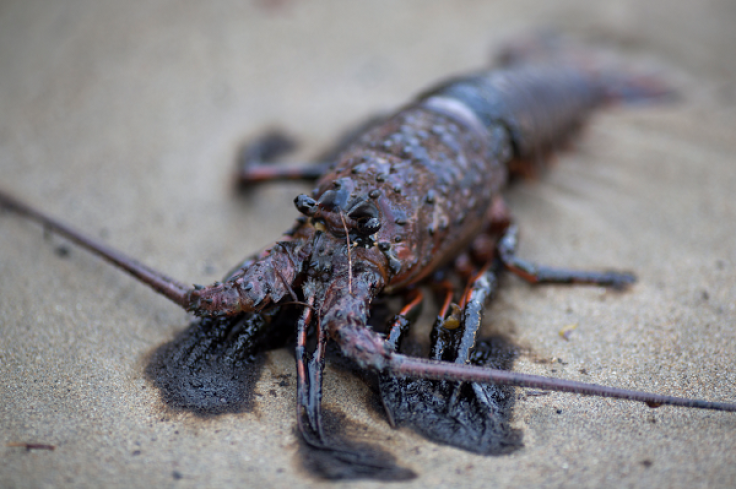How Much Oil Spilled In Gulf Of Mexico Off Louisiana Coast? Animals In Danger After Fire Burns Platform

A fire scorched an oil platform in the Gulf of Mexico near the coast of Louisiana early Thursday, according to reports. The blaze caused four people aboard to jump into the water. They were rescued by the Mary Wyatt Milano supply vessel, which was nearby when the fire started, the Coast Guard said in a statement.
There was no word on how the fire started, nor have any injuries been reported, but officials were investigating the blaze that lit up the platform around 2:30 a.m. The oil rig was located about 80 miles south of Grand Isle, Louisiana.
Aircrew from the Coast Guard Aviation Training Center in Mobile, Alabama, was reportedly headed to the platform, where members from four other vessels, including workers from the 130-foot Mary Wyatt Milano supply vessel, were helping to extinguish the fire, CBS affiliate WWL-TV reported.
There were no immediate reports of pollution. However, Clean Gulf, an oil spill response team stationed in the Gulf of Mexico, was headed to investigate the scene and check for environmental damage not long after the fire was stabilized, the Coast Guard said.
#Breaking: Fire on #oil platform in Gulf of Mexico. Crew rescued. No word yet about amount of oil spilled. We never learn. #environment pic.twitter.com/Py84tdme1y
— Daniel Schneider (@BiologistDan) January 5, 2017
The last major oil spill in the Gulf of Mexico was back in April 2010 after a well drill by BP oil company exploded, causing the deaths of 11 workers on the Deepwater Horizon oil rig. The explosion caused an oil leak into the Gulf that lasted 87 days, spilling about 210 million gallons of oil into the Gulf, which caused severe devastation to wildlife living in the area.
Following the spill, scientists dived into the Gulf to search for wildlife. Even after plunging roughly 1,600-meters into the Gulf, research teams were only able to spot one crab during their eight-hour dive, CBS reported. However, four years later, the same research team, headed by University of Georgia oceanographer Mandy Joye, discovered eels, skate fish and vampire squids roaming the floor of the Gulf.
However, at the time, Joye told CBS news that the team also found oil layers in sediment samples collected on the sea floor, which could indicate adverse long-term effects on marine life in the Gulf.
More recently in December 2016, researchers suggested a rare whale species called Brydes Whale could potentially end up on the endangered species list after discovering there were fewer than 100 of the whales remaining in their predominant habitat in Florida extending from Pensacola to the Tampa Bay area. The whale’s prime habitat reportedly overlaps with areas severely affected by the 2010 oil spill. The National Marine Fisheries Service and National Oceanic and Atmospheric Administration said in their joint study of the whales that about half of the Brydes Whales were exposed to oil and 17 percent of the species were killed by the spill in 2010 alone.
© Copyright IBTimes 2024. All rights reserved.












